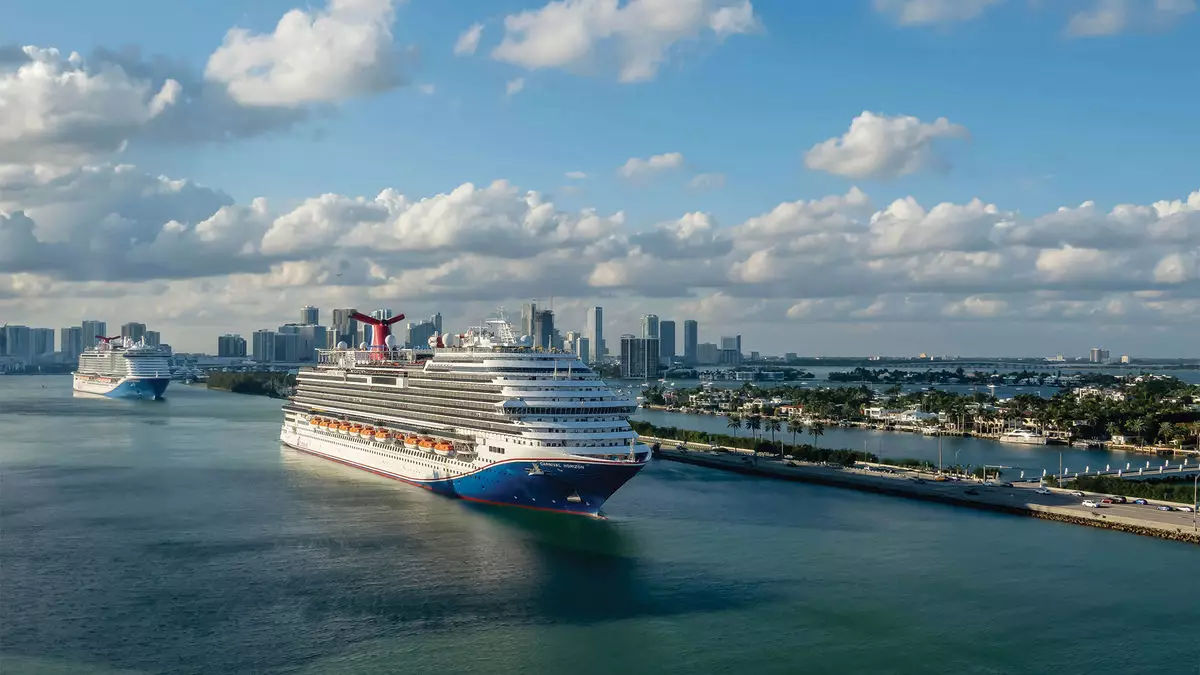In the world of tourism, the cruise industry has gradually expanded, attracting millions of travelers who often see the local port city as a mere gateway to their vacations. However, this perception presents a significant challenge for local tourism boards aiming to enhance their economies by inviting cruise passengers to extend their stay. A transformative approach is necessary, one that encourages travelers to rethink their vacation timelines and embrace the surrounding destinations as integral parts of their experiences.
Jean-Paul Rodrigue, a maritime business administration professor at Texas A&M University-Galveston, highlights a critical barrier hindering local tourism development: the time-budget constraint. Many American vacationers have rigid schedules, often adhering to a one-week cruise plan without flexibility to include beach excursions or local attractions beforehand or afterward. The default mindset positions ports of call as mere bonuses rather than essential components of the vacation package. This static viewpoint restricts travelers from fully capitalizing on the rich offerings available in port cities.
Changing Mindsets with Strategic Marketing
To counteract the prevailing mindset, Brett Laiken, the chief marketing officer at Visit Florida, advocates for a revolutionary perspective: Starting the cruising adventure upon arrival at the state. By reframing the narrative around the journey, the aim is to fuse the cruising segment with local attractions, promoting excursions as integral to the overall vacation experience. Laiken’s assertion strategically counters the traditionally segmented approach by highlighting Florida as both the embarkation point and a vital destination within the journey.
Visit Florida has initiated a campaign designed to intrigue cruise travelers and persuade them to consider pre- and post-cruise activities as essential elements of their vacations. Collaborating with prominent travel agencies to market these opportunities is a crucial part of the initiative. By focusing on educational campaigns, social media outreach, and training programs, Visit Florida spreads awareness and fosters relationships between travel advisors and travelers in a direct manner, facilitating deeper engagement with local tourism.
Understanding the essential role travel advisors play in shaping travelers’ behavior, Visit Florida’s program encourages advisors to seamlessly integrate local attractions into cruise bookings. Clients benefit from this approach, as the process transforms from a simple cruise reservation to a comprehensive travel package. As Laiken notes, the goal is to ensure that advisors do not simply list cruises but embrace a broader scope of excitement in their recommendations.
The program has already yielded impressive results, with travel advisors generating over $14 million in additional bookings since its inception. The collaboration is set to expand further as Visit Florida anticipates enhanced partnerships with cruise lines, airports, and local attractions to maximize the potential for pre- and post-cruise tourism across Florida’s portfolio of experiences.
Local Initiatives and Successful Models
Beyond Florida, other destinations are applying similar strategies, with New Orleans & Co. emerging as a notable example. The organization prioritizes partnerships with travel advisors to create enticing packages, ensuring that clients receive added perks that differentiate them from what is available publicly. The association aims to simplify the sales process for travel advisors while providing exclusive benefits that bolster their loyalty to the local tourism industry.
In New Orleans, travel advisors can request unique “cruise coupons” providing discounts on attractions, thereby enhancing their value proposition in the eyes of clients. Senior account executives, like Rachel Funel, assist travel advisors in crafting customized itineraries for even the briefest layovers, ensuring memorable experiences for guests that encourage future visits.
Visit Lauderdale also showcases the effectiveness of working closely with specialized travel agencies. The collaboration ensures that advisors possess the latest information about local offerings, enabling them to create compelling packages for cruise passengers. This reinforces the idea that local tourism boards and travel advisors must collaborate for mutual benefit, enhancing both the traveler’s experience and the region’s economy.
The evolution of cruise tourism is underway, driven by the need to shift perspectives and maximize visitors’ experiences. By embracing innovative approaches that prioritize local engagement, tourism boards can turn port cities from mere stopovers into essential destinations. The collaborative synergy between travel advisors and local tourism boards is instrumental in this transformation, enabling travelers to view their vacations holistically, thereby reinforcing their connection to both land and sea. As the industry continues to adapt, it is clear that fostering cross-promotional strategies will be vital for future growth in cruise-related tourism.


Leave a Reply